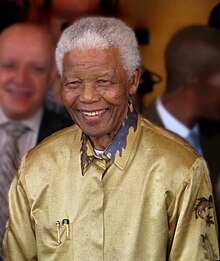Un rapport définitif établi par un groupe indépendant d'experts des Nations-Unies affirmant que le Rwanda continue de soutenir la rébellion M23 dans l'Est de la RDC a été présenté ce vendredi 12 octobre au comité des sanctions du conseil de sécurité de l'ONU. Malgré la confirmation de ces accusations par les ONG telles que le Human Rights Watch(HRW), International Crisis Group(ICG) ainsi que la condamnation par la communauté internationale de son implication dans ce conflit, le Rwanda continue à nier les allégations contenues dans ce rapport en affirmant qu'il a été établi sur base de rumeurs et des ouïes-dire.

La rébellion M23
Ce rapport, qui est plus accablant que celui rendu public en juin 2012, indique que le Rwanda n'a pas cessé d'entrainer et recruter des troupes pour le M23, tout comme il n'a pas cessé de fournir des armes et de l'aide logistique. Comme il ressort de ce rapport, ce M23 serait composé d'environ 1250 soldats qui auraient déserté l'armée nationale congolaise et qui continuent de gagner du terrain.
Des accusations sans fondement, selon le Rwanda
Le Gouvernement rwandais dénonce et condamne ce rapport définitif le qualifiant de sans fondement et prétextant qu'il est basé sur des rumeurs; ceci en dépit de la confirmation des faits par des rapports similaires établis par Human Rights Watch et International Crisis Group. Le Gouvernement rwandais a chargé le cabinet d'avocats Akin Gump Strauss Hauer & Feld LLP, basé à New York, pour l'aider à contrer ces accusations et défendre les autorités rwandaises devant le comité des sanctions des Nations-Unies. Ce cabinet d'avocats sera donc chargé d'élaborer un document montrant que le groupe d'experts des Nations-Unies est biaisé et que ces experts n'ont pas accordé au gouvernement rwandais l'occasion de répondre à ces allégations avant de finaliser et transmettre ce rapport.
Un officiel du Gouvernement rwandais qui a pris connaissance de ce rapport définitif, a déclaré que le groupe d'experts ont procédé à une « kitchen-sink », stratégie consistant à coller des morceaux basés sur des rumeurs et des ouïes-dire tout en espérant que plus le volume des accusations non fondées sera grand, plus crédible sera le résultat de leur travail.
Dans leur contre rapport qui devait être transmis au comité des sanctions ce vendredi 12 octobre 2012, le gouvernement rwandais veut s'attaquer directement aux auteurs du rapport plus particulièrement, au coordinateur du groupe, Steve Hege, l'accusant d'injuste et surtout d'anti-Rwandais. Par conséquent le gouvernement veut démontrer que Steve Hege n'est pas habilité, ni qualifié pour continuer dans sa position actuelle.
Il ressort aussi du côté rwandais, que le groupe d'experts ne leur a pas accordé suffisamment de temps pour examiner les résultats contenus dans ce rapport, avant de le transmettre au comité des sanctions et surtout, le Rwanda accuse ces experts de ne pas avoir incorporé dans ce rapport définitif les points de vue du Rwanda.
Le Rwanda a refusé de discuter du rapport
Un addendum publié récemment par les mêmes experts indique que le groupe a fourni des efforts afin de pouvoir discuter avec le gouvernement rwandais du contenu du rapport, mais sans succès notoire. Ils ajoutent que durant une visite officielle effectuée à la mi-mai à Kigali, le gouvernement rwandais n'a pas voulu les recevoir pour discuter de ces questions.
Toujours pas de solution pour combattre le M23
Lors d'une réunion tenue récemment à Kampala en Ouganda, par la Conférence internationale pour la région des Grands Lacs, les chefs d'Etats ont accepté d'aller en avant en ce qui concerne le plan de déploiement d'une force neutre de 4000 hommes sous l'égide des Nations-Unies et de l'Union africaine pour combattre les groupes rebelles dans l'Est de la RD Congo.
Au cours d'une réunion convoquée par l'ambassadeur de la France auprès de l'ONU sur la RD Congo tenue le 10 octobre 2012, l'Ambassadrice des USA, Susan Rice a confirmé les déclarations faites par le sous-secrétaire d'Etat des USA pour les affaires africaines, Mr. Johnnie Carson, qui demandent au gouvernement rwandais de condamner officiellement le M23. L'Ambassadrice Rice a aussi insisté qu'une solution régionale soit trouvée. Cependant après 3 réunions avec échec à Kampala et un mini-sommet à New York sous les auspices de Ban-Ki-Moon terminé en chaos, il est difficile de s'imaginer comment une solution régionale pourrait être trouvée.
A Kinshasa, le sommet de la francophonie s'est clôturé ce 14 octobre 2012 et il est prévu que tous les participants signent une résolution condamnant les exactions commises dans le Kivu la région Est de la RD Congo. Curieusement le Rwanda représenté par sa ministre des affaires étrangères Louise Mushikiwabo, selon TV5, n'a pas l'intention de signer cette résolution. Ces réserves observées du côté du Rwanda sont considérés par autres participants au sommet comme un aveu de culpabilité.
Plusieurs centaines de milliers de déplacés
Le M23 qui aurait été créé par le Gouvernement et les autorités militaires rwandais depuis avril 2012, a déjà causé plusieurs centaines de milliers de déplacés et est responsable d'innombrables morts et blessés dans le Nord-Est de la RD Congo riche en minerais.
Ces accusations contre le Rwanda de créer et soutenir le M23 ont fait qu'un groupe de certains pays occidentaux ont suspendu leurs aides envers le Rwanda d'environ 90 millions de dollars américains, depuis le mois de juin, lorsque le rapport provisoire des experts de l'ONU ainsi que celui de Human Rights Watch avaient été rendus publics.
Ce rapport définitif peut rendre difficile l'élection du Rwanda par l'Assemblée Générale, comme membre non permanent du Conseil de sécurité des Nations-Unies pour la période 2013-2014. Cette élection devrait avoir lieu au courant de la semaine prochaine.
Jeph Mboneye
Jambonews.net




